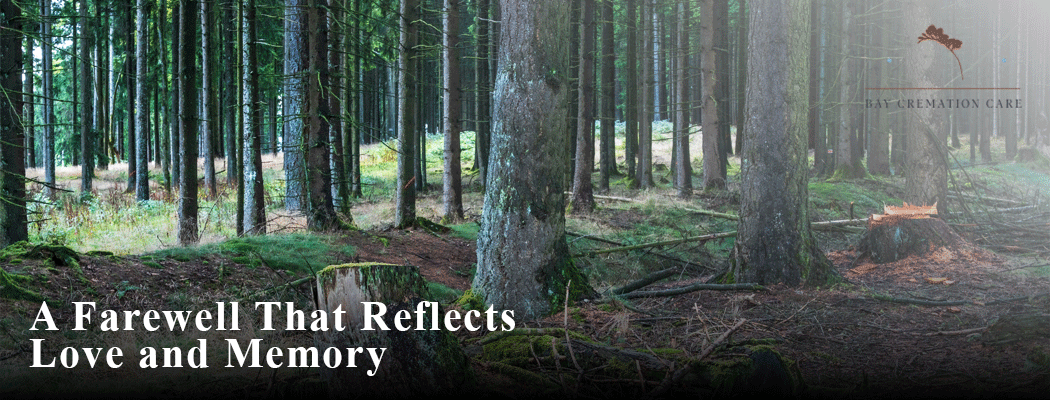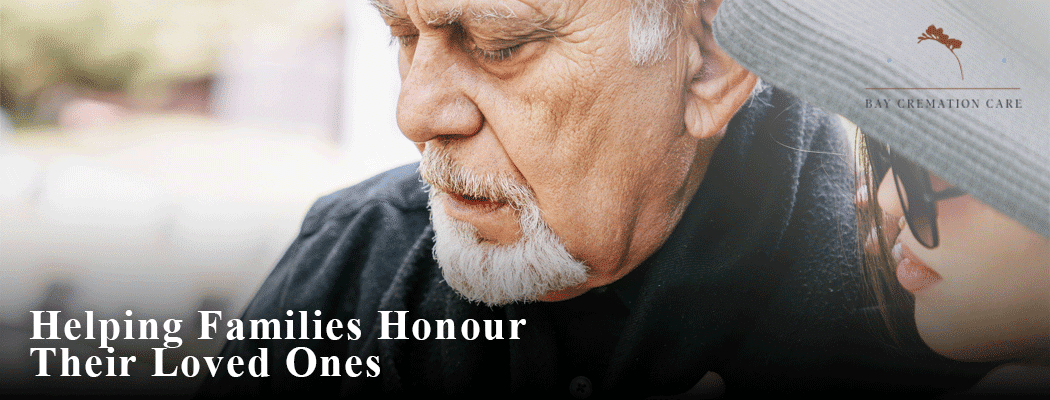
Saying goodbye after cremation often brings families comfort, as scattering human ashes outdoors feels calm and respectful in ways that formal memorials may not provide. Many choose serene locations such as beaches, forests, or mountains, where private moments of reflection feel natural and meaningful. Families connect treasured memories with the quiet beauty of nature, creating tributes that feel sincere and enduring.
Scattering ashes outside also helps people process grief in a way that aligns with personal beliefs, cultural traditions, and practical choices. Families often see it as a gentle act that restores a sense of balance, where loved ones remain symbolically part of the earth’s cycle. This blog explores legal guidance, practical considerations, and cultural practices, while also sharing the benefits of natural settings for those seeking thoughtful farewells.
When planning an ash scattering ceremony, it is important to know the rules so everything is done legally and respectfully. People often ask where can you legally scatter human ashes in NZ, and the answer depends on the place, as some areas may need council permission. Understanding the rules early helps families avoid problems and ensures a loved one is remembered with care.
Rules for scattering ashes at sea in NZ can be slightly different, and often involve contacting maritime authorities or following established maritime laws that protect the water. Some councils allow scattering in public parks but may request that it is done away from walking paths or areas used for recreation. Respecting the law not only protects the environment but also safeguards families from facing uncomfortable situations during a very emotional time.
Private land brings another consideration, since landowner permission must be secured before scattering takes place. When choosing natural landscapes on conservation land, approval might be needed to prevent harm to fragile ecosystems. Every ceremony gains greater meaning when care is taken to respect both legal guidelines and the people who might share that space in future.
Many families ask about the best natural places to scatter human ashes in NZ because landscapes across the country hold unique beauty that resonates deeply. Coastal beaches remain one of the most chosen settings, as the movement of tides carries symbolic meaning for release and renewal. Families often feel a deep sense of calm when standing together with the sound of waves marking the farewell moment.
Forests create a private space where families can say goodbye, surrounded by trees that stand tall and steady. Some choose clearings that allow sunlight to filter through branches, creating a space that feels natural yet sheltered. Scattering human ashes among trees can help families feel connected to an environment that symbolises life continuing quietly.
Mountains provide a different kind of resting place for human ashes, where views stretch far and the air feels still. Those who love hiking or who spend time outdoors often find meaning in choosing such landscapes. Every natural setting reflects a unique connection, and families find comfort in selecting a place that feels true to the person remembered.
Families often wonder about the environmental effect when scattering human ashes across natural landscapes, yet in most situations, the impact remains minimal if done carefully. Human ashes are made of minerals and contain no harmful chemicals, which means they do not usually damage soil or water. Scattering thoughtfully ensures that the environment continues to thrive while still holding memories of loved ones.
Care becomes important when scattering ashes in large amounts in one area, as this can sometimes affect plant growth. Spreading ashes widely and gently reduces any chance of harm, making it easier for nature to absorb minerals without difficulty. Families can show care for the environment while still creating a lasting farewell.
Some choose eco-friendly alternatives that blend more gently into the earth, such as biodegradable urns that slowly release human ashes into the soil. Planning in this way helps nature remain unharmed while providing a memorial that respects both people and the environment. Families can take comfort in knowing that remembrance and care for nature can exist together without conflict.

Planning an ash scattering ceremony allows families to create a farewell that reflects love and memory without complexity. Some find it helpful to prepare a few words in advance so everyone knows what to say at an ash scattering ceremony, which helps moments feel personal and thoughtful. Simplicity often adds to the sense of peace when loved ones stand together in open surroundings.
Choosing a time of day can influence the mood, with early morning often bringing quiet while evenings hold a softer light. Many families gather in small numbers, allowing conversations and moments of silence to blend naturally. Preparation can also include choosing music, reading a poem, or simply letting the natural sounds provide comfort.
Practical details also matter, such as carrying ashes in a container that makes scattering easy and respectful. Families may prefer to gather around in a circle or form a line along a beach or path. Each choice brings structure to the ceremony while ensuring that the focus remains on remembering a life with care.
Cultural practices often guide families in how they scatter human ashes, giving meaning that stretches beyond a single ceremony. Māori traditions for scattering ashes often reflect deep connections to land and water, with customs that place importance on spiritual balance and community. Respecting cultural values ensures that farewells remain authentic to heritage and history.
In many cultures, water carries strong meaning because it represents flow and continuation, which is why scattering at sea holds importance. Families following different faith traditions may recite prayers, share memories, or carry out symbolic acts that connect loved ones to the natural world. Every tradition gives shape and depth to the farewell process.
Modern families often blend cultural traditions with personal preferences, choosing locations that match both spiritual belief and family memory. A farewell might include traditional rituals followed by simple gestures that reflect the loved one’s unique life. Such ceremonies create balance between heritage and personal choice, offering comfort to those present.
As more families choose nature for farewells, eco-friendly options for scattering human ashes gain importance. Biodegradable urns designed for land or water allow ashes to return gently to the earth without leaving lasting traces. Families find comfort in knowing that the farewell supports nature while providing a meaningful way to remember.
Some urns are shaped for water scattering, dissolving naturally as waves carry human ashes outward. Others are made for burial in soil, where natural fibres break down and return minerals safely into the ground. Choosing such alternatives demonstrates care for both the planet and the person remembered.
Natural scattering methods often involve walking into a forest, standing on a headland, or gathering near a lake. Families can release human ashes directly into the air or onto the soil, with simple movements that connect memory and environment. Choosing eco-friendly approaches allows remembrance to live within landscapes without creating harm.
Scattering human ashes in natural surroundings often brings calm for families during difficult moments. Nature creates a sense of openness that allows grief to soften while providing space for reflection. Those present often leave with a feeling that memories now belong to a place of peace.
Families also value the freedom that comes with choosing outdoor settings, where ceremonies can be simple, private, and flexible. Unlike traditional burial, scattering does not require large arrangements or long planning. A quiet gathering with thoughtful words often becomes enough to mark a meaningful farewell.
Many find comfort in returning to the place where ashes were scattered, creating a lasting link between memory and landscape. Walking along a beach, visiting a forest path, or standing at a lookout provides gentle reminders. Each return reinforces the bond with the person remembered, making natural settings deeply valuable in long-term remembrance.

Families often seek guidance when arranging a scattering ceremony, especially when unsure about permissions or suitable locations. Support services provide advice on legal requirements, practical planning, and ceremony options. Having this support helps reduce stress during an already emotional time.
Professional care providers guide families on how best to prepare human ashes for scattering, making sure containers are appropriate and plans are organised. They can suggest safe locations and explain respectful ways to carry out ceremonies in natural settings. With this help, families are able to focus on the meaning of the occasion rather than practical arrangements.
Emotional support is available through counselling services or community groups that assist those coping with loss. Talking with others can provide comfort and understanding while building a sense of connection. Families gain reassurance when services bring together practical guidance and compassion, helping farewells take place with dignity.
Scattering human ashes in natural landscapes offers families a way to create farewells that are both peaceful and meaningful. By planning with care, respecting legal rules, and considering environmental effects, families can find comfort in ceremonies that feel gentle and personal. Natural places allow for reflection, remembrance, and an ongoing sense of connection that extends well beyond the ceremony itself.
Bay Cremation Care provides support for families who wish for guidance in planning respectful ceremonies. With knowledge of where ashes can be scattered legally in NZ and how to do it properly at sea, families feel confident that farewells are handled with care. Services that acknowledge cultural practices, eco-friendly methods, and personal wishes ensure that scattering ceremonies remain calm and thoughtful, creating memories that feel both lasting and respectful.
At Bay Cremation Care, we are dedicated to providing everyone with options for planning an affordable yet meaningful funeral service at our funeral home in Tauranga.
We are passionate about doing everything we can to give your loved one a beautiful, respectful, memorable farewell and alleviating your pain in this challenging time.
We believe that a funeral plays a vital role in offering closure and catharsis after a loss. That is why we will go out of our way to provide you with caring, attentive service.
Based in the Bay of Plenty, Bay Cremation Care has been offering the people of Tauranga and its surrounding areas compassionate care and support in their most challenging times. The company is run by Alistair Black, a fully qualified Funeral Director, Embalmer and member of the Funeral Directors Association of New Zealand (FDANZ) and NZ Embalmers Association.
